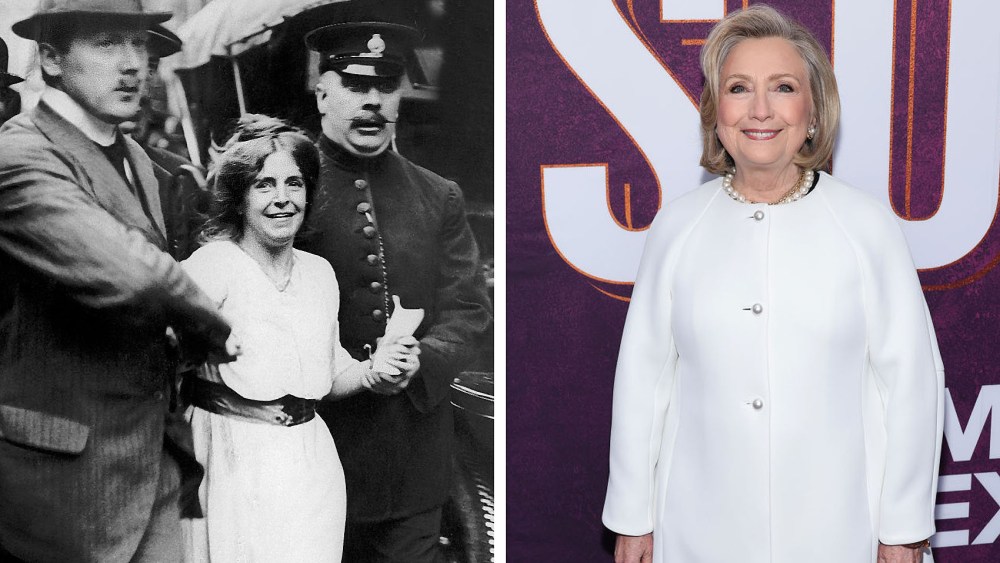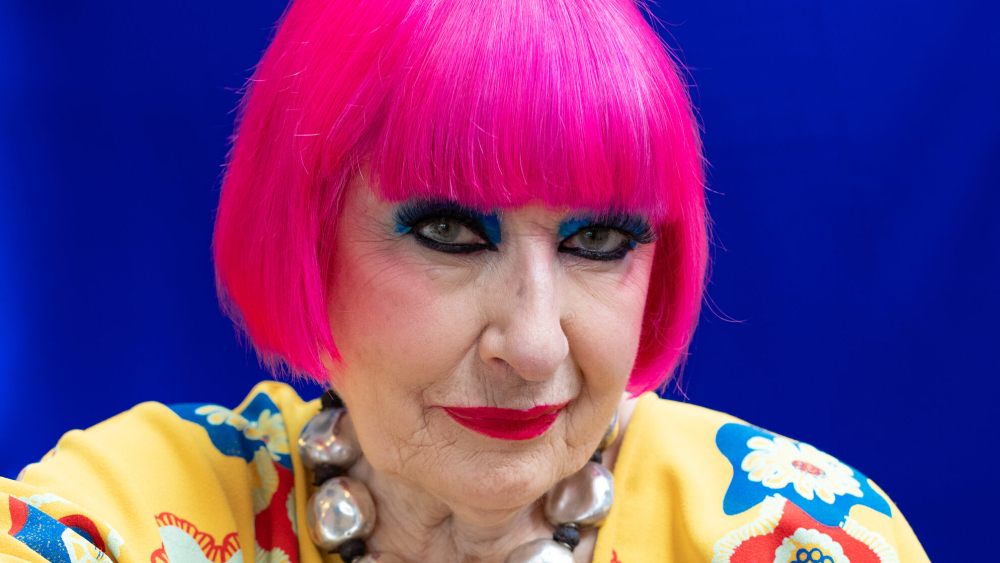It took decades of protest, organized demonstrations and more for the U.S. to enshrine in its constitution that a citizen could not be prevented to vote based on sex. The decision, passed in June 1919 and ratified in August 1920, changed history, and continued to ripple throughout the U.S., creating new waves of the feminist movement.
Looking back more than 100 years, women who advocated for the right to vote, called suffragettes, used sartorial statements to magnify their message. The color white became symbolic of the women’s suffrage moment.
Ahead, learn more about the history behind suffragette-white and its incarnations throughout history to today.
Why White?
Before white became the unifying color that brought the suffrage movement together, many women dating back to the mid-19th century who were active in women’s suffrage organizations used the color yellow to symbolize the movement.
You May Also Like
“In 1869, the suffragettes went to Kansas, and the Kansas state flower is the sunflower,” Einav Rabinovitch-Fox, a lecturer at Case Western Reserve University’s Department of History, said. Yellow became the suffragette color and by the 1890s it would be their official color.

At the time, suffragettes were rallying to ratify state constitutions one by one, traveling to each state to make their case for women’s right to vote. Simultaneously, women in England were organizing under the colors green, purple and white. Rabinovitch-Fox notes there were several “trans-Atlantic conversations” between the movements and its representatives, including Alice Paul and Lucy Burns, leaders of the American movement.
“When Paul and Burns came back to the U.S., they start looking for those color schemes.” Suffragettes, Rabinovitch-Fox says, were very savvy when it came to the media; they knew the power of dressing for the movement.
“White is one of the colors but it didn’t become so prevalent until very late, partly because suffrage parades were very colorful,” Rabinovitch-Fox explained. “Because they were so savvy and understood the media, they themselves sent photographs to newspapers. Alice Paul was very good at saying, ‘We need to create this visual contrast.’ White was useful for them to do that. Streets were very dark, so if you see a bunch of women in white dresses or light dresses, the contrast [in photos] will be great. They understood that. White is just a more practical color.”
The argument to make the suffragette movement more egalitarian was “wear a white dress and a yellow bow and you’re a suffragist,” Rabinovitch-Fox said.
In the United States, the color was seen often when women marched for the right to vote in the latter stages of the movement.
It’s also important to note that the color white and whiteness played a key role in the women’s suffrage movement. “The 19th amendment doesn’t guarantee the right to vote, it does say you cannot prevent someone from voting on account of sex. But you can prevent them from voting on account of other reasons,” Rabinovitch-Fox said. While prominent Black activists like Ida B. Wells voted in the North following the 19th amendment, Black women, Indigenous women and more waited for years to become active participants in the United States’ democratic process.
“We tend to think of the 19th amendment as the end of the story, but it’s really not.”
Other Colors of Note

Other colors incorporated into the women’s suffrage movement were yellow gold, purple and green. Each color, like white, symbolized a particular quality. White was often associated with purity, green with hope and purple with royalty.
To this day, green and purple are still seen during suffragette celebrations. To commemorate the 100-year anniversary since women won the right to vote in the United Kingdom in June 2018, women gathered and waved flags with the purple, white and green colors. Many also wore the tricolor scheme.
In Today’s Politics

Suffragette white still appears as a powerful sartorial statement in contemporary politics, but this is a recent phenomenon. Rabinovitch-Fox credits the 2016 election as a time when white dressing surged, especially among female politicians. “Once Clinton adopted it,” Rabinovitch-Fox says, “it became a way of connecting past struggles with current struggles.”
Vice President Kamala Harris has worn suffragette white on several pivotal occasions during her political career. During the 2012 Democratic National Convention in Charlotte, N.C., the future vice president of the United States wore suffragette-white as a symbol, evoking the power of women in politics.
For her historic victory speech after President Joe Biden won the presidency, and Harris won the vice presidency, she wore suffragette white again. She thanked “all the women who have worked to secure and protect the right to vote for over a century — 100 years ago with the 19th Amendment, 55 years ago with the voting rights act, and now in 2020 with a new generation of women in our country who cast their ballots and continued the right for their fundamental right to vote and be heard.”

Vice President Harris further reflected on the occasion, saying, “while I might be the first woman in this office, I will not be the last.”
During other political occasions, such as the State of the Union address, women who are members of the Democratic Party wore suffragette white as a sartorial statement to address women’s reproductive rights.
“White makes you stand out. As a woman you stand out in congress, for sure. But a group of women wearing white in congress, that’s a statement of power.”

Away from Capitol Hill, women still wear suffragette white on historic occasions and celebrations. During the 131st Rose Parade in Pasadena, Calif., women fashioned white pieces of clothing inspired by the early 20th century to celebrate the 100th anniversary of the 19th amendment. The color purple was also featured on sashes, hats and more.
“Suffs” the Broadway Musical

The musical “Suffs” is nominated for six Tony Awards at the 2024 awards show on June 16. The musical relays the historic events of the early 20th century, leading up to the ratification of the 19th amendment to the constitution in 1920.
The show celebrated its opening night on April 18 in New York City. Hillary Clinton, who is a producer of the show, attended the event wearing a symbolic sartorial statement. The former first lady and secretary of state chose to wear suffragette white to the show, as a symbol of the work women did, and continue to do, for women’s rights.
Although the movement began more than 100 years ago, women’s suffrage and the colors that symbolism the political and social goals of women still carry weight. They are a sartorial symbol of progress, hope and the eternal desire for equality — the medium is the message.



